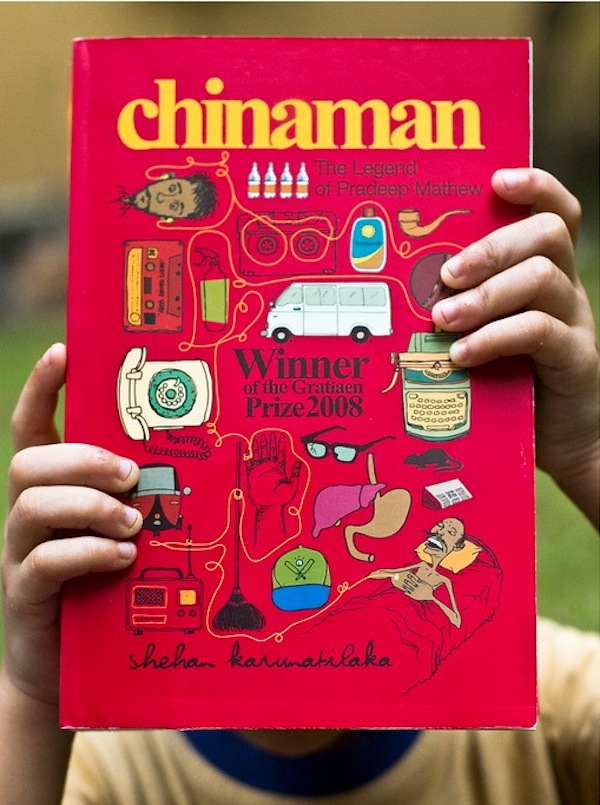Original photo by Deshan Tennekoon
What do you call something whose name you don’t know or can’t remember, or which you prefer to avoid naming for whatever reason? A whatsit or a widget? a thingy or a thingummy? a thingamabob or a thingamajig? a gadget, a gubbins or a gizmo? a whatsitsname or a whatchamacallit? The proper term for all these words is a placeholder name. Wikisaurus lists dozens of them here.
In Sri Lankan English that something is normally called a this thing, but this doesn’t appear on the Wikisaurus list. It can refer to any inanimate object (“Did you remember to bring your this thing?”); it serves as a euphemism (“You could see his this thing!”); and it can be made plural (“Don’t forget your this things!”). It can function as an adjective (“You must be feeling very this thing”), or as a verb (“They must have this-thinged it earlier”), sometimes with the addition of the suffix –fy (“It needs to be this-thing-fied”). As these examples illustrate, the term defies normal grammatical conventions.
It is used by Michael Ondaatje in both Anil’s Ghost and The Cat’s Table:
“Your father was … this thing … right?” (Anil’s Ghost, page 26)
“They are all right, but his ‘this thing’ is hurt.” (The Cat’s Table, page 104)
And it appears in the first edition of Chinaman by Shehan Karunatilaka:
“Those are … some … this things,” Ari stammers. (Chinaman, page 338)
In the Indian edition this has been changed to “his things”. Strictly true since the things referred to are the midget’s spools (… you need to read the book). But an unfortunate edit since it changes the sense of Ari’s evasive statement, while depriving the text of a nice Sri Lankanism.
The expressions this one (“Haven’t seen this one for ages”) and that one (“You should have seen what that one was wearing!”) are both used to refer to people the speaker chooses not to name for whatever reason. Variations include expressions such as this girl (“How is this girl?”) and that fellow (“I saw him with that fellow”). Also our one (“Don’t know what our one will say”) and our friend – often used to refer to a child who is present so that they will not realise thay are being talked about (“Our friend is in a bit of a mood today”). The standard English equivalents would be you-know-who, so-and-so, whatshisname, whatshername, etc.
Here are some lines from a poem by Barbara Sansoni featuring four placeholder names:
I went to this place
That one was there
He’d brought his this thing
For our one to share.
(Press with the Toes in the Grass, by Barbara Sansoni, page 88)
And finally, another line from Chinaman which didn’t survive the Indian edit:
“Sha, this one is using big words and all.” (Chinaman, by Shehan Karunatilaka, page 48)
###
A-Z of Sri Lankan English is“an all-new, occasional alphabetical dip“into the variety of English spoken in Sri Lanka, published exclusively on“Groundviews. The original A-Z of Sri Lankan English was published in the travelsrilanka magazine, and can be found here.
